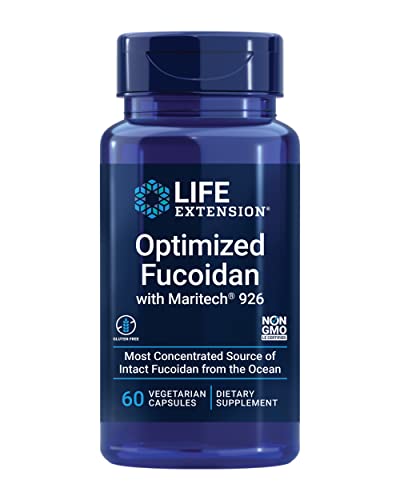Fucoidan
Overview
Fucoidan is a sulfated polysaccharide predominantly found in the cell walls of brown sea‑weeds (e.g., Fucus spp., Undaria spp.) and some marine invertebrates. It is marketed as a dietary supplement because its unique structural features give it anti‑inflammatory, immunomodulatory, and anticoagulant properties that may support overall health.
Chemistry
Fucoidan is a heterogeneous, high‑molecular‑weight (50–1,500 kDa) sulfated polysaccharide composed mainly of α‑L‑fucopyranose units with 2‑O‑ and 3‑O‑sulfate groups. Typical composition: 40–60 % fucose, 10–20 % sulfate, 5–10 % uronic acids, and variable mannose, galactose, and xylose residues. The repeating unit can be represented as:
[(\text{α‑L‑Fuc}(2‑SO_3^−)-1→3‑\text{α‑L‑Fuc}(2‑SO_3^−)-1→]
with branching at C‑2 or C‑4 positions. The overall empirical formula approximates C₆H₁₁O₅S (per monosaccharide unit). The high density of negative charge gives fucoidan its polyanionic nature, enabling interaction with positively charged proteins (e.g., growth factors, selectins) and contributing to its biological activity.
Sources & Quality
Commercial fucoidan is primarily extracted from:
- Brown sea‑weeds – Fucus vesiculosus (bladder kelp), Undaria pinnatifida (wakame), and Laminaria spp.
- Marine invertebrates – Holothuria (sea cucumber) – though less common due to lower yields.
Extraction typically involves hot water or dilute acid extraction, followed by ethanol precipitation, de‑proteinization, and ultrafiltration to obtain a high‑purity, sulfated fraction. Quality considerations:
- Sulfation level (≥30 % recommended for immunomodulatory effect).
- Molecular weight distribution – low‑MW (≤50 kDa) fractions may have higher bioavailability.
- Contaminant testing – heavy‑metal (arsenic, lead) and microbial limits must meet USP/EFSA standards.
Third‑party certified “Marine‑derived” fucoidan with batch‑to‑batch consistency (e.g., via HPLC‑SEC profiling) is preferred for clinical‑grade supplements.
Where to Buy Fucoidan






Affiliate Disclosure: We earn a commission if you purchase through these links at no additional cost to you. This helps us maintain our research and provides you with the best supplement information.